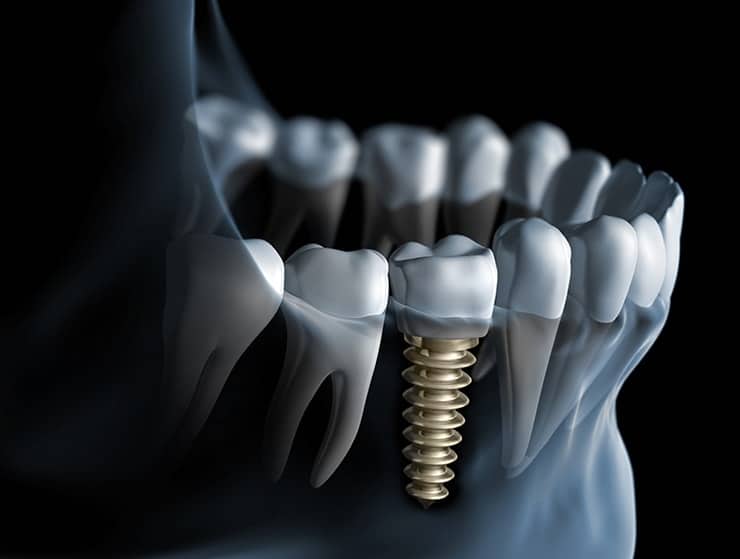When you lose a tooth, you don’t want to wait to get it replaced. But not everyone’s in a position to get dental implants right away. Maybe you didn’t have the money. Maybe you weren’t a good candidate because your jaw hadn’t finished growing. Or maybe you just weren’t ready to commit to implants. But whatever the reason, you ended up with a tooth replacement situation that sufficed for a while, like a partial denture or dental bridge.
But now you’re ready to consider dental implants, and it’s years after you lost your tooth or teeth. Are you still a candidate for dental implants?
Yes, but there are a few things we have to consider first.

Are You Still Healthy?
Dental implant surgery isn’t major surgery, but it is surgery, and you have to be healthy enough for it. So one of our first concerns has to be evaluating your health. We will likely ask you to talk to your doctor about surgery and get cleared before we start the procedure.
We’ll also talk to you about medications that can impact the success of your dental implants, such as antidepressants, which can increase the risk of implant failure.
At the same time, we’ll evaluate your oral health. You should be in good oral health before getting dental implants. Gum disease is a major concern. It’s a leading cause of tooth loss and it can attack your implants, too. Plus, tooth replacements like dental bridges or dentures can make it harder to clean your teeth and lead to gum disease.
Do You Have Enough Bone?
All the bones in your body get remodeled in response to stress and pressure, but none is more dynamic than your jawbone. When you lose a tooth, you don’t have anything there to stimulate the bone–bridges and dentures don’t do it–so your body removes the bone.
When years pass after tooth loss, the jawbone in that area may no longer be strong enough to support an implant. If that’s the case, we may have to do another procedure, called a bone graft, before placing an implant. Sometimes, bone grafts can be done at the same time as the implant is placed. Other times, the graft may have to be done first and allowed to heal for months before the implant is placed.
Our digital implant process allows us to assess your condition and streamline the process for best results, but it doesn’t always eliminate the need for a graft.
Is There Space for an Implant?
Any tooth replacement option you choose should make enough space for itself that you can get a dental implant. But if you opted not to replace your tooth right away, your remaining teeth may have crowded in around the lost tooth. That will mean that there’s not enough room to place an implant right now. We have to make space.
Orthodontics can move your teeth to create space for your dental implants.
How Is Your Bite?
Wearing poorly fitting dentures or not replacing a missing tooth can also cause another problem: it can alter your bite. When this happens, there might be excessive force where your implant is going to go. This can damage your implant.
If we find that your bite doesn’t create a healthy environment for your implant, we can work to restore a more natural bite. This will help your implant to last a lifetime.
Explore Your Implant Options
Whatever the reason why you didn’t get implants when you lost your tooth, it doesn’t have to stop you from getting implants now. Most people are good candidates for dental implants, even years after losing a tooth.
Do you think the time is right for dental implants for you? Let us help you restore your whole smile, with a new dental implant that’s almost like getting your natural tooth back. Please call (02) 9686 7375 today for an appointment with a Sydney-area implant dentist at My Hills Dentist in Baulkham Hills.

